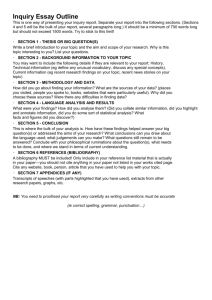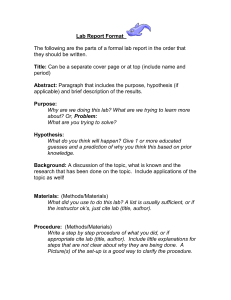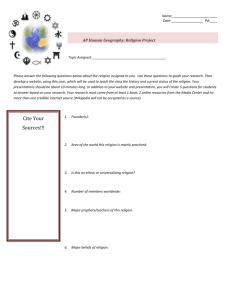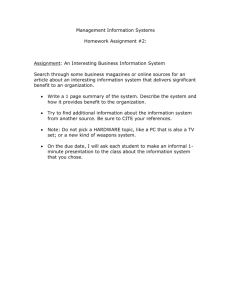Copyright for Kids
advertisement
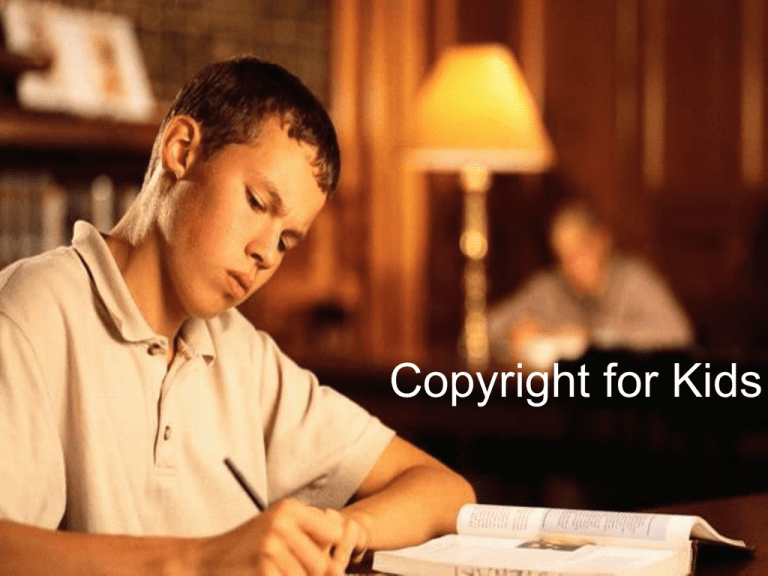
Copyright for Kids What is Copyright? • Copyright is a United States LAW that protects the works of authors, artists, composers and others from being used without permission. IT’S A LAW! Why learn about Copyright? • When you do RESEARCH, you look for answers to your questions: • In Non-Fiction books … • In Encyclopedias … • On the Internet … So what? • When you SHARE YOUR RESEARCH (present the answers to your questions) you have used someone else’s: • • • • • Ideas Words Music Pictures WORK! What if I put it in my own words? • Even when you TAKE NOTES and use your own words, you must give credit to the original author’s ideas. • ALWAYS GIVE CREDIT TO THE AUTHOR! What if I don’t? • Then you have stolen someone else’s work! This is called plagiarism. • You have BROKEN THE LAW! What is Plagiarism? • Using other authors’ words and ideas in your writing without giving them credit. How Can I Avoid Plagiarism? • Always develop a Bibliography or a Works Cited list. • Use quotation marks when you record the author’s exact words. • Common knowledge (like the fact that birds fly or frogs are amphibians) does not need in-text citations but must be written in your own words. Just list the source in your bibliography. Citing Sources How do I show where I got my RESEARCH information? • Where you found your RESEARCH information is called your SOURCE. • There is a proper way to list, or CITE, your sources. You can use APA, MLA, etc… Copy RIGHT … Don’t Copy WRONG! How do I cite a book? • To cite a book: Author(s). Title. City of publication: Publisher, Date. How do I cite an article from an encyclopedia? • To cite an encyclopedia article… Author (if given) or editor (ed.). “Title of article.” Title of book or publication. edition year. How do I cite something I found on the INTERNET? • To cite something from the INTERNET … Author. “Title.” Online posting. Date of posting. Name of forum. Date of access <Electronic address or URL>. COPY RIGHT Be sure tocite! What about MY Work? • Whenever you write a poem, or story, or paper, or draw a picture, you own the copyright to it! • Copyright protects the work of ALL authors and creators. • You alone have the right to make or share copies of your work. Copyright Vocabulary Vocabulary Review • Research: Asking questions and finding answers • Source: Where you found the answers for your research • Cite: Listing your sources • Bibliography: A record of all sources used in your research • Works Cited: a list of all sources that you cite in the text of your paper • Copyright: A law that protects someone’s original work • Plagiarism: Using other author’s words or ideas without giving them credit Cool Copyright Websites! To Learn More … • Visit Cyberbee, an interactive Web site designed especially for kids. • Look at Copyright Kids for more detailed information. Sources Nottage, C. & Virginia Morse. Independent Investigation Method. Epping: Active Learning Systems, 2000.
